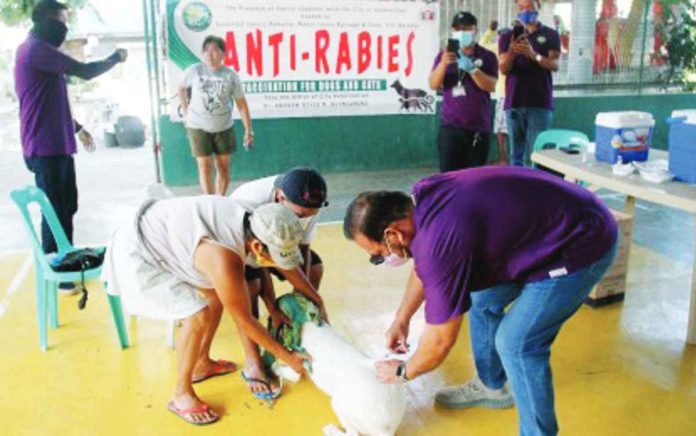
BACOLOD City – A one-year-old boy from Moises Padilla, Negros Occidental was believed to be the first rabies death in the province for 2024.
Dr. Girlie Pinongan, provincial health officer, said the child was a resident of the town’s Barangay Macagahay.
Based on information they have gathered, Pinongan said the child was bitten by their pet dog last week.
However, his parents did not immediately take the boy to a medical facility to be examined and treated.
As a result, he died at the hospital on Monday, Jan. 22, Pinongan said.
Despite this, however, data from the Provincial Health Office revealed that there was a drop in rabies cases in Negros Occidental last year with only six cases compared to 10 in 2022.
Pinongan again appealed to the residents to immediately seek medical assistance if bitten by an animal.
She also called on the local government units (LGUs) to strictly impose their respective ordinances on responsible pet ownership.
Last week, Provincial Veterinary Office (PVO) head Dr. Placeda Lemana said they detected a total of 17 canine-positive rabies cases among dogs in the province, including its capital city.
As of Dec. 31, 2023, the PVO had vaccinated a total of 123,000 dogs, only 45 percent of the total dog population of more than 200,000.
Lemana said there had been a drop in vaccination rate as the province has not received its supply of rabies vaccines from the Department of Agriculture.
The PVO is currently lobbying for the purchase of rabies vaccines. They target to vaccinate at least 70 percent of the total dog population in the province.
Lemana added they are encouraging the LGUs to purchase their own supply of rabies vaccines.
The PVO is also expecting a spike in rabies cases this year due to the effects of the El Niño phenomenon.
According to the United States Centers for Disease Control and Prevention (CDC), rabies is a preventable viral disease most often transmitted through the bite of a rabid animal.
The rabies virus infects the central nervous system of mammals, ultimately causing disease in the brain and death.
The first symptoms of rabies following a bite from a rabid animal, and if left untreated, include weakness or discomfort, fever, or headache. There also may be discomfort, prickling, or an itching sensation at the site of the bite, these symptoms may last for days.
Symptoms then progress to cerebral dysfunction, anxiety, confusion, agitation, hydrophobia, and ultimately death.
Treatment for rabies include postexposure prophylaxis (PEP) consists of a dose of human rabies immune globulin (HRIG) and rabies vaccine given on the day of the rabies exposure, and then a dose of vaccine given again on days 3, 7, and 14. (Watchmen Daily Journal)/PN





